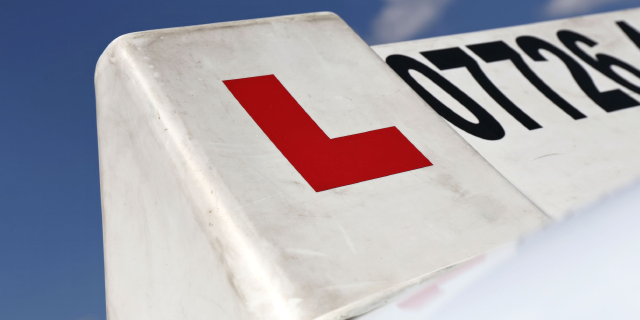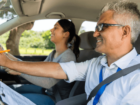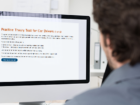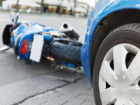Your practical driving test is, understandably, a nerve wrecking time.
No matter how many hours of practice you’ve put in, it’s hard to plan ahead for real-time traffic and road issues.
Anything from a closed exit to a stray cat in the road could throw you off, and unfortunately, you can’t always count on your fellow drivers to be patient and understanding on your test day.
So, while there’s a lot of things that could happen, here’s a few things that will happen:
The practical driving test will last for around 40 minutes and is split into five parts;
- An eyesight check – Driver and Vehicle Licencing Agency (DVLA) eyesight rules
- Vehicle safety questions
- General driving ability
- Complete one of the following manoeuvres
- Bay park – the instructor will decide whether you reverse in and drive out, or drive in and reverse out
- Parallel park
- Pull up on the right-hand side of the road, reverse for two car lengths and re-join the traffic
- Independent driving – 20 minutes using either a sat-nav or by following road signs
Find full details of the practical test here.
To pass the practical driving test you’ll need to have made no more than 15 minors (driving faults)and no majors (serious or dangerous faults).
If you pass the test you’ll get a pass certificate straight away, your full driving licence will be sent to you in the post and you’ll be able to drive away from the test centre ‘L’ plate free.
If you don’t pass the test the driving instructor will go through any faults you made with you.
You can then decide if you wish to book the test again.
If you do, the earliest you can retake your test is 10 working days from the date of the original test.
You’ll also need to pay for the test again which is £62 on a weekday or £75 for an evening or weekend test.
So, to avoid paying out any more than you have to, we’ve compiled a list of top tips to help you get that pass.

Stick to regular driving lessons
Two hours of driving a week should be enough to keep you progressing at a steady pace while ensuring you don’t forget anything you’ve learnt between lessons.
Once you’ve mastered the basics you’ll soon find yourself picking up manoeuvres, trying harder routes and building on your initial confidence.
To do this you’ll need to be driving consistently and maximising your time with your instructor as you get closer to being exam ready.
Practise driving independently
It’s easy to rely on your driving instructor to tell you when to turn and what’s coming ahead, but you’ll learn more if you try driving without that comfort blanket.
When you feel ready to drive without their instruction, ask them to set the sat-nav to a different route to normal or choose an unknown destination for you to reach by traffic signs only.
In the test, you’ll be asked to drive independently for about 20 minutes so make sure you’ve practised driving with both of these methods prior to the day.
You might also be surprised how much you start to self-evaluate your driving instead of relying on your instructor’s corrections, which should help to further ‘click’ things into place.
Book a mock practical
Mocks are a great way of tidying up loose ends and stamping out any nerves about the unknown.
The mock will be done with your driving instructor under test conditions on a test route so you’ll know exactly what to expect on your actual test day.
Your instructor will be able to give you plenty of feedback to give you a clear idea of what you need to work on so you can pass the real thing.
Get a good night’s sleep
Lack of sleep affects our ‘executive function’ which considerably lowers our ability to do well at everyday tasks.
It also slows your reaction time down and leaves you lacking in problem solving skills, memory and innovative thinking.
All things that could come in useful during your driving test.
Try to book your test for later in the day, so if nerves keep you up late you can still get your eight hours in, as well as leaving time for a last lesson before you head to the test centre.
Don’t get in a flap
By the day of the test both you and your instructor should feel completely confident in your driving abilities.
This confidence alone should help to lower your nerves.
If you feel under prepared in any way, simply cancel the test and push it back to a later date.
Don’t risk your time, money and confidence with a needlessly disappointing test experience.
Have lots of brain food before you leave such as bananas, eggs or porridge, and get to the test centre with plenty of time to spare and bring a book or something to take your mind off the test while you’re waiting.
Our last top tip is to keep the date of your test quiet.
The more people who know, the more pressure you’ll feel to pass.
Don’t feel disheartened if, like the majority, it takes you two, three or more tries until you get that all important pass.
There’s no maximum amount of tests you can take or driving lessons you can do, but hopefully by following our tips you’ll be in good stead to be one of the handful who pass their test first time.
You can compare insurance quotes online or over the phone with 60 plus leading insurance providers










